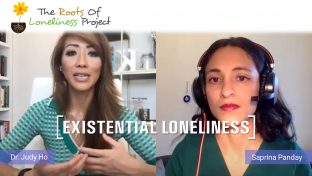Loneliness During Retirement: When The Years Aren’t So Golden

The life I thought I would be living in retirement turned out to be very different than what I was experiencing. — Gregory, 72
Many seniors experience depression, social isolation, and loneliness after they leave the workforce.
Key Takeaways:
- Retirement can lead to between a 5% and 16% increase in difficulty related to mobility-based activities, up to a 6% increase in health conditions, and a 6 to 9% decline in mental health.
- Changes to income, routine, and personal independence can worsen feelings of loneliness in retirement.
- By embracing change, finding new meaning and purpose, and expanding your social circle, you can take steps to keep retirement loneliness at bay.
Struggling with loneliness or having a mental health crisis?
- Suicide Prevention Lifeline: 1-800-273-TALK (8255); Deaf or hard of hearing dial 711 before the number or connect via online chat
When Gregory Goodman retired, the freedoms that came with it were exciting, but the sudden shift in his lifestyle brought about unexpected changes that were disheartening.
After transitioning out of the workforce, social isolation, a lack of purpose, and a sense of unfulfillment were emotional challenges that hit him especially hard.
Beyond these things, Gregory struggled with grief after losing his wife.
Tarnished by unforeseen circumstances and loneliness, his “golden years” were not at all what he thought they would be.
Why Loneliness Often Emerges During Retirement

Globally, the average person retires from the workforce around the age of 64, but depending on where you live and your personal means, retirement age might be anywhere from 55 to 68.
Regardless of your current situation, ending your working life will change things — often for the better, but sometimes in unexpected or even tricky ways.
Retirement might feel like a 2-ton weight has been lifted from your shoulders if your former job was physically demanding, unfulfilling, or left you feeling burned out.
But if you loved your work and found it truly gratifying — or built your entire social life around your career — retirement can present a series of complex challenges.
Retirement loneliness may arise from:
- Being unable to shift out of “work mode” and relax in what feels like an endless vacation, especially if you were a leader in your former role or an entrepreneur
- Anxiety about having too much extra time on your hands
- Finding it difficult to fill your days with meaningful activity while at home
- Losing a part of your identity: If you’re no longer a doctor, teacher, or coach, who are you?
- Feeling isolated without regular social interaction from former co-workers
- Experiencing a decrease in how useful or necessary you were when working, which can wreak havoc on your self-confidence
- Having to create a new routine and not knowing what it should look like
- Maintaining independence if you’re suddenly with a spouse or partner all the time
- Anxiety over finances without a usual paycheck to spend, especially if you’re living off of Social Security or do not have adequate funds set aside for retirement
- Struggling with health issues like cancer or disability during your advancing age
- Facing the loss of a spouse or other family members as you age or grieving alone
- Living alone, or having to learn how to live alone for the first time
- Dealing with the isolation that results from mobility or transportation issues, especially if you’re no longer driving or find it difficult to get “out” into the world for socialization
Whatever challenges a person faces when entering this new chapter in their life, easing the transition can help reduce the feelings of stress, anxiety, and loneliness associated with finding new meaning and purpose in life.
But that doesn’t mean the transition is easy.
“It was a very lonely time,” Gregory Goodman, the retiree and widower I spoke with earlier, explained. Facing retirement alone, his “golden” years turned out to be anything but.
“The life I thought I would be living in retirement turned out to be very different than what I was experiencing,” he said. “My kids were busy with their lives, and without my wife, I felt completely isolated. It was depressing.”
Retirement can be a challenging time, especially if a retiree lives far away from their family — or alone. Even so, living with someone or being married won’t necessarily “cure” loneliness after leaving the workforce.
Anne Janco is 69 years old. She worked as a teacher for nearly 40 years before transitioning to retirement.
“After I retired, I missed the camaraderie of my fellow teachers,” she observed.
“I felt like I could go for weeks without seeing anyone but my husband. I love him, but it just wasn’t the same socially. I felt very lonely.”
Without the routine of going to work, having lunch with co-workers, or taking part in other social events connected to busy careers, many people find that some of their most enjoyable and closest relationships come to an end upon retirement.
All these things can bring about feelings of isolation, depression, and loneliness, which can be detrimental to one’s health over time.
One study found that retirement led to a 5 to 16% increase in difficulty related to mobility-based activities, up to a 6% increase in health conditions, and a 6 to 9% decline in mental health.
Although retirement can feel like a long-awaited (and much-deserved) vacation after decades spent in the workforce, it can just as easily become a catalyst for cognitive, physical, and emotional decline.
Whether you’re in retirement and living alone or you feel lonely transitioning into retirement, it’s important to recognize feelings of loneliness and isolation so you can take steps to combat them.
Retirement is a challenging time, even though it sounds like it should be a breeze.
After leaving the workforce, people may struggle to find new friends and social activities to fill the time they once spent with coworkers.
Although common, feeling lonely after retirement can impact not only your mental health, but your physical, cognitive, and emotional health, too.
Treasuring Your Golden Years (Without Being Lonely)

Retirement can be a life-altering transition for anyone who isn’t prepared.
The idea of retiring from the workforce seems like it should be effortless — the moment you close the office door behind you, a yellow brick road unfurls itself, leading you straight to the Emerald City…or at least sunny Florida.
The truth is that you’ve become accustomed to going to work every day — for years and years — and when you’re suddenly left with all of this time on your hands, you have no idea what on earth to do with it.
It’s normal to feel lost. There may not be a yellow brick road to follow, but there is good advice.
Ann Janco, the retired teacher I spoke with earlier, started a hobby that bloomed into an active social life.
“I decided to start a small garden which grew into a big garden,” she recalled. “I joined a gardening club at my community center and met a few new people I can now call close friends.”
Gardening isn’t for everyone — but her experience highlights the importance of finding something that you enjoy. The exploration of a “simple” hobby may open the doors to new experiences — and friendships.
Beyond hobbies, there are several other ways to alleviate retirement loneliness.
Embrace Change With Open Arms
Change is an inevitable part of life, but coping with it is seldom easy.
As we get older, life reshapes itself at lightning speed.
Kids leave home, you lose friends and loved ones, physical and health challenges make an appearance, and then retirement arrives and it’s the icing on a cake you’re not even sure you’re ready to eat yet.
It’s normal to respond to all of life’s changes with many different emotions — and what you’re feeling right now isn’t wrong.
Give yourself space to acknowledge your emotions but remember: this too shall pass.
With change comes growth and opportunity for something new — even if it takes you out of your comfort zone for a while.
Think back through all the times your life altered course and reflect on the way you made it through those changes.
At the beginning of each, you likely struggled with similar emotions — fear of the unknown, anxiety, uncertainty — but you came out stronger on the other end of it.
Keep that in mind, now. You’ve got this.
A minor attitude adjustment and rallying your strength will help you to maintain a healthy perspective when it feels like life is at its most challenging.
Prioritize Social Support
Seniors often feel as though they’re somehow a “burden” to their families. For this reason, they may not reach out for help — even when they really need a hand to hold or someone to talk to.
Don’t shut your family out or put on a “brave” face as you head into retirement. It’s okay to need other people — and for them to need you.
Yes, your children’s lives are probably busy but that doesn’t mean they don’t have time for you, or that they won’t make it.
Even a weekly family dinner night can provide precious time for social interaction with those you love most in the world.
Seek opportunities to bond with the youngest members of your family, as well. If you need to, take a computer class to brush up on your skills so you can keep up with your grandkids.
Ann Janco, who worked as a teacher for nearly 40 years, told me that she learned how to use FaceTime so she could see and connect with her grandkids more often.
“That really gives me a lift,” she said.
So keep in touch with those you love. Strong family ties can help you deal with the stresses of life and keep loneliness at bay.
But what if you don’t have family nearby, or at all? Or if you can’t connect with your friends because they’ve not yet retired themselves?
You don’t have to face the challenges of retirement alone, especially when so many other people your age are going through the same experience.
Seek a peer support group and if you’re unsure how to find one, reach out to a local senior center — they likely have resources for connecting with other retirees.
Some online resources for seniors include:
- American Association Of Retired People (AARP)
- National Council On Aging
- American Society On Aging
- Vantage Aging
Depending on your former employment, there might even be an established group of retirees who worked in the same field. Local groups like this might meet monthly for lunch or dinner, or engage in other social activities together.
Reaching out and spending time with others can help you to feel less alone, but it will also allow you to share your thoughts and feelings with people who are navigating retired life, too.
Social support and reassurance from your peers can have a significant impact on your mental health and happiness in retirement.
Find A New Purpose
Working is about more than just getting a paycheck. It also adds meaning and purpose to our lives.
Your job can make you feel needed, productive, and valuable — or even just give you a reason to get out of the house every day.
After retirement, it’s essential to look for new sources of meaning and find activities that bring you joy.
Volunteering can benefit your community and give you a sense of purpose in your retired life, but it can also expand your social group as well.
Take on the challenge of learning something new — a skill you’ve always wanted to develop, for instance, like a foreign language or an instrument.
By doing this, you can expand your mind (which is important for cognitive health!) and set new goals for yourself. Additionally, it gives you something to look forward to doing each day.
If you’re an animal lover, a pet will give you unconditional love and companionship. And if you rescue, you’re saving a life!
Your daily existence may feel like it’s lacking direction after retirement but there is purpose and meaning to be found, even in the smallest things.
Manage Anxiety And Depression
Just because you’re retired does not mean your life will be a stress-free, endless vacation. A lot of times, it feels like it’s the exact opposite of a vacation.
Some retirees live on a fixed income and need to learn to manage their finances differently upon retirement.
Others may be navigating a “new relationship” with their spouse now that they’re home together all day.
Retirees may be dealing with health problems at some point as well, thanks to the natural aging process.
All of these things — and many more — can create anxiety and depression.
Although it’s important to seek professional help when anxiety or depression becomes serious, there are other things you can do to help manage it.
Exercise is a fantastic way to boost your mood, not to mention support your physical health. Join a gym or find a workout class at the YMCA — preferably one designed with seniors in mind.
Try yoga, pilates, water aerobics, or a similar type of low-impact class that will get your heart pumping without the danger of overexertion or injury.
Not only will feel better physically and mentally, but you’ll likely make new friends in the process.
Another way to boost your mood is to spend time in nature. Wide-open green spaces will heighten your sense of well-being and remind you of all the beauty there is to be found in the world.
There may be senior groups that take walks together in local parks — which can be a great way to spend time outdoors and socialize with others.
If your physical condition doesn’t allow for easy walking, backyard gardening can be a great way to enjoy the fresh air — close to home.
Finally, intentional relaxation practice can do wonders. Meditation or Tai Chi provides deep relaxation that can help with anxiety, depression, and stress while improving your flexibility and overall sense of well-being.
Prioritize Health
Dealing with any significant life change like retirement can take a toll on your physical and mental health, weakening your immune system.
Yes, you’re getting older but that doesn’t mean your health “is what it is” — you still need to take care of yourself. You’ve got a lot of good years and great things ahead of you!
Eat a balanced diet. Eating fresh, delicious food is always better in the company of others, so cook for (or with!) a friend or neighbor. In this way, you’ll stay social while fueling your body with the good food it needs.
Don’t forget to challenge your brain. Keep reading, do puzzles, play word games, or take a college course. Activities like these will help to combat cognitive decline or memory issues.
Don’t forget to make — and show up for — regular checkups with your doctor. Staying healthy at any age is essential, but it takes a little more effort as you get older.
By visiting the doctor and getting routine checkups and tests, seniors can ward off problems before they start and uncover issues early while they’re easily treatable.
Taking care of your mental and physical health is vital, as it will help with all aspects of your well-being.
Closing Thoughts
Nobody wants to feel the weight of isolation or depression during their retirement, so it’s important to recognize those feelings and take steps to increase your quality of life wherever you can.
Incorporating new habits and a fresh outlook will help you feel less isolated and alone after you leave the workforce.
These years can be golden if you maintain a positive mindset and embrace this new era of your life — it’s a gift of time that’s yours to treasure, so make the most of it.
Editor’s Note: This article is part of The Roots Of Loneliness Project, the first-of-its-kind resource that comprehensively explores the phenomenon of loneliness and over 100 types we might experience during our lives.
Find Help Now
If you’re struggling with retirement loneliness, we’ve put together resources to meet you wherever you are — whether you want someone to talk to right now, or are looking for longer-term ways to help ease your loneliness.
- Suicide Prevention Lifeline: 1-800-273-TALK (8255); Deaf or hard of hearing dial 711 before the number or connect via online chat
- Resources & Emotional Support For Loneliness
- Volunteer & Pet Adoption Opportunities






